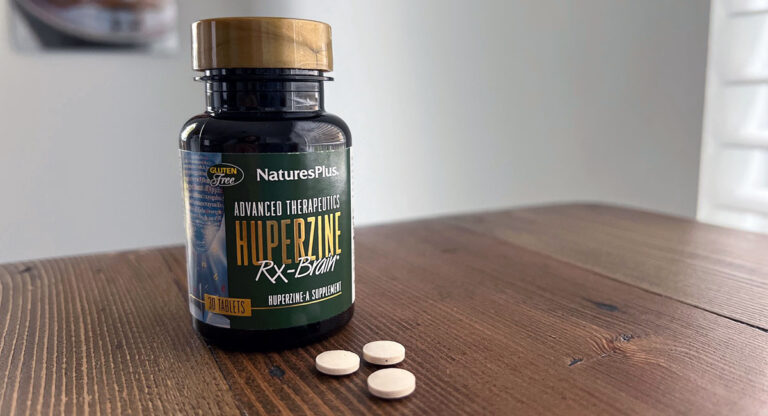
Gut to Brain: how to protect your gut-brain connection
Links in some blog posts may earn a commission for The Brain Cleanup Coach.
In a previous post I addressed protecting the blood-brain barrier. The blood-brain barrier is a layer of cells surrounding most of the blood vessels in the brain that are tightly packed together, creating what are know as tight junctions that highly regulate what can pass into the realm of the brain.
Like the blood-brain barrier, your gut also has a lining of cells that perform the same task, highly regulating what molecules can pass from your gut into your blood-stream. Or at least that’s supposed to be how it works!
Leaky Gut
Poor diet, lack of fiber, stress, and lack of exercise can affect the environment in the gut, which in turn can cause the cells tasked with the job of defending your body from invaders to slack off. When this happens particles, microbes, and viruses can be allowed to pass into your bloodstream. This is often referred to as leaky gut.
When your immune system detects these things, an inflammatory response is triggered in order to neutralize and clean out the invaders. These types of responses lead to systemic inflammation, meaning rather than having an acute (targeted) response, your entire system might be affected by the inflammatory process.
According to this article from Healthline, this type of systemic, chronic inflammation can show up as:
- arthritis
- cancer
- heart disease
- type 2 diabetes
- asthma
- obesity
- cognitive decline and dementia
Healing and Maintaining your Tight Junctions
It’s obvious that the gut and brain play off each other, and optimal health for each is affected by keeping the tight junctions they depend on intact. This begins in the gut. Your gut is the frontline, the first soldiers on the battlefield tasked with defending your body from harm. Unfortunately, the food environment we highly intelligent creatures have engineered for ourselves often works against the integrity of these soldiers. But the good news is that it’s not hard to turn things around. You can rebuild the integrity of your gut by doing a few simple things:
Whole foods – Cut as much of the processed stuff out as you can. I know this is easier said than done, because processed foods can be a time saver, plus they are engineered to make you crave them. Lots of grocery stores now offer fruits and veggies already processed for you, including cut veggies and bagged salads. Also, if you make it a habit to actually read the ingredients on boxes, you’ll soon figure out that there are some products with ingredients you recognize, and a lot with long ingredient lists full of things you’d have to google to understand. Skip those. Only eat food with ingredients you know, and the fewer ingredients the better, with just one ingredient (the whole food itself) always being the top choice.
Probiotics – You can give your gut a leg up by eating fermented foods that give your microbiome a hand as they pass through. Unsweetened yogurt, kombucha, live culture pickles and sauerkraut, or even probiotic supplements can aid in healing a leaky gut.
Low to Moderate Exercise – All exercise is good, right? Not necessarily for the gut. This study shows that prolonged high intensity exercise creates hypoxia (lack of oxygen) in the gut, because blood flow is diverted to muscle tissue. This environment creates all the symptoms of leaky gut. On the other hand, low to moderate exercise enhances gut health by increasing motility, assisting your gut in moving particles through the gut at a healthy pace.
Fiber – Fiber not only feeds healthier bacteria in your gut, thereby affecting the balance of your microbiome (increasing the good guys), but it also binds to waste products in your gut, helping them transit through your gut and get excreted. If you consume a whole foods diet, you’ll be getting a good amount of fiber. Be sure to eat the most fibrous parts of fruits and veggies where appropriate. Examples of this would be the stalks of broccoli, or the skins of potatoes.
Water – Water is your guts friend, as long as it’s filtered, clean water. Water aids your gut in transporting particles through, and is an important part of the “packaging” (aka poop) that transports waste out of your body. Be sure to consume water all day long. You don’t have to overdue it and force yourself to consume huge amounts, but create the habit of always having a glass or bottle of water on hand at all times, and regularly sip off it.
Pay Attention – Finally, one of the most important things you can do to care for your gut is to pay attention to it. You only know if there are weeds in a garden by paying attention to it. Paying attention to your gut can help you figure out what foods are harming it, and what food are healing it. And guess what? Some very healthy, whole foods might irritate your gut, so you shouldn’t consume them. Or maybe you can consume them cooked and you’re fine, but raw is a no go. You’ll only figure these nuances out by paying attention. If this seems too overwhelming, a health coach like me can help you figure it out.
Protecting your Gut-Brain Connection
By now hopefully you’re picking up on the fact that protecting your gut IS protecting your brain. Your gut is the front door and foyer to the mansion that houses all the rooms in your body, each room housing a critical component of your functioning body. Your brain is on the top floor, in the biggest room, where all the treasures are stored. For invaders, it’s advantageous to try and get to that room in order to gain access to the goods.
That is why it’s critical to feed your gut the right things, in order to keep the front door guarded. And by the way, all the “windows” (other openings including the nose and eyes) depend on the nutrients coming from your gut to remain healthy as well.
Getting to Know Your Gut
If you want to take a deeper dive into the state of your gut, there are services out there that will test your microbiome and report the state of your gut back to you. One of the most popular is Viome. This is the service I use. (FYI, I am not affiliated with them. I receive no benefit from mentioning their services.) This article from GoWellness rounds up a few different services to try.
One of the benefits of using a service like this is it takes the guess work out of figuring out what foods to eat and avoid, based on your microbiome. It can be handy to have information like this at your fingertips!
So what does all this information boil down to? Concentrate on the health of your gut, and you are bound to affect the health of your brain in a positive way.
If you enjoyed this article you might also like:
- Gut to Brain: How to protect your blood-brain barrier
- Using food to support your body
- Why are fatty acids important?
- What are the best foods I can eat for my brain?
Photo by Alina Grubnyak on Unsplash




